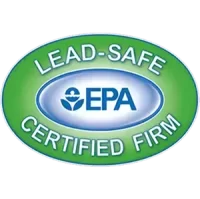Understanding When Water Heater Replacement Becomes Essential
Water heaters represent one of the most critical appliances in any Aurora home, providing the hot water necessary for daily activities from morning showers to evening dishwashing. At Energy Services Air Conditioning and Heating Company, we’ve observed that most homeowners in the Aurora area don’t think about their water heater until problems arise. The average water heater operates continuously, heating and reheating water 24 hours a day, which naturally leads to wear and deterioration over time. In Aurora’s climate, where winter temperatures regularly drop below freezing, the demand on water heating systems increases significantly during colder months, potentially accelerating the need for replacement.
The typical residential water heater has a lifespan ranging from eight to twelve years, though this varies based on water quality, usage patterns, and maintenance history. Aurora’s water, which comes from Lake Michigan and deep aquifer wells, contains minerals that can accumulate inside water heater tanks, creating sediment buildup that reduces efficiency and accelerates corrosion. When sediment accumulation becomes severe, it not only diminishes the unit’s heating capacity but also creates hot spots on the tank bottom that can lead to premature failure. Regular flushing can extend a water heater’s life, but eventually, replacement becomes the most economical and practical solution.
Recognizing the Warning Signs of Water Heater Failure
Identifying early indicators of water heater problems can prevent the inconvenience and potential damage of complete system failure. Rust-colored water emerging from hot water taps often signals internal tank corrosion, particularly problematic in older units where the anode rod has depleted. This sacrificial component normally protects the tank from corrosion, but once exhausted, the tank itself begins deteriorating. Temperature inconsistencies represent another common issue we encounter throughout Aurora homes, where water alternates between scalding and lukewarm without adjustment to the thermostat settings.
Strange noises emanating from the water heater, including rumbling, popping, or banging sounds, typically indicate excessive sediment accumulation. As water heats, it must work through layers of mineral deposits, creating steam bubbles that produce these concerning sounds. Visible moisture or pooling water around the unit’s base demands immediate attention, as even small leaks can quickly escalate into significant water damage. At Energy Services Air Conditioning and Heating Company, we’re proud to provide the best in HVAC and indoor air quality services to residential customers throughout Chicago and the surrounding communities, including comprehensive water heater diagnostics that help Aurora homeowners make informed replacement decisions.
Selecting the Right Water Heater for Your Aurora Home
Modern water heater technology offers Aurora homeowners numerous options beyond traditional tank storage models. Conventional storage tank water heaters remain popular due to their lower upfront costs and simple operation, available in capacities ranging from 20 to 80 gallons. The appropriate size depends on household size and hot water usage patterns, with a typical Aurora family of four requiring a 50 to 60-gallon unit. These systems store heated water continuously, ensuring immediate availability but consuming energy to maintain temperature even during periods of non-use.
Tankless water heaters, increasingly popular in Aurora’s newer construction and renovations, heat water on demand without storage requirements. These units occupy minimal space and provide unlimited hot water, making them ideal for larger families or homes with multiple bathrooms. While initial installation costs exceed traditional models, tankless systems typically operate at 82 to 98 percent efficiency compared to 60 to 80 percent for storage tanks. The absence of standby heat loss translates to lower monthly utility bills, with many Aurora homeowners recovering the additional investment through energy savings within five to seven years.
Professional Installation Process and Considerations
Proper water heater installation requires careful attention to local building codes, manufacturer specifications, and safety protocols. Aurora’s building department mandates specific requirements for water heater installations, including proper venting for gas units, adequate drainage provisions, and seismic strapping in certain applications. Our installation process begins with thorough evaluation of existing plumbing and gas connections, electrical service capacity for electric models, and available space for the new unit. Whether you need to find the right HVAC system for a new home or want to have maintenance completed on your current system, you can count on us to ensure all installations meet or exceed local requirements.
The installation procedure involves safely disconnecting and removing the existing water heater, which requires proper drainage and careful handling to prevent water damage. New installations often necessitate upgrades to existing infrastructure, such as installing expansion tanks to comply with current codes, upgrading gas lines to accommodate higher BTU requirements of modern high-efficiency units, or adding dedicated electrical circuits for electric models. Proper ventilation remains crucial for gas water heaters, with direct vent and power vent options available depending on home configuration and local code requirements.
Energy Efficiency and Cost Considerations
Energy efficiency ratings significantly impact both environmental footprint and long-term operating costs for Aurora homeowners. The Energy Factor (EF) rating indicates overall efficiency, with higher numbers representing better performance. Modern standard tank water heaters achieve EF ratings between 0.60 and 0.95, while tankless models reach 0.82 to 0.98. Heat pump water heaters, though less common in Aurora due to basement temperature considerations, can achieve EF ratings exceeding 2.0 by extracting heat from surrounding air.
- Natural gas water heaters: typically cost $300 to $600 annually to operate in Aurora homes
- Electric resistance water heaters: average $400 to $800 in annual operating costs
- Tankless gas models: reduce operating costs by 24 to 34 percent compared to storage tanks
- Heat pump water heaters: can reduce electricity consumption by up to 60 percent
Initial equipment costs vary significantly across different technologies and capacities. Standard 50-gallon gas water heaters range from $600 to $1,500, while comparable electric models cost $500 to $1,400. Tankless units require larger investments, typically $1,000 to $3,500 for equipment alone, with installation costs potentially exceeding those of traditional models due to gas line upgrades or electrical service modifications. However, available rebates through Illinois utilities and federal tax credits can offset these higher initial costs, particularly for ENERGY STAR certified models meeting specific efficiency thresholds.
Water heater replacement in Aurora represents a significant home improvement investment requiring careful consideration of immediate needs, long-term efficiency goals, and budget constraints. Our experienced technicians help homeowners navigate these decisions, ensuring selected systems provide reliable hot water while minimizing energy consumption and operating costs throughout their service life.










